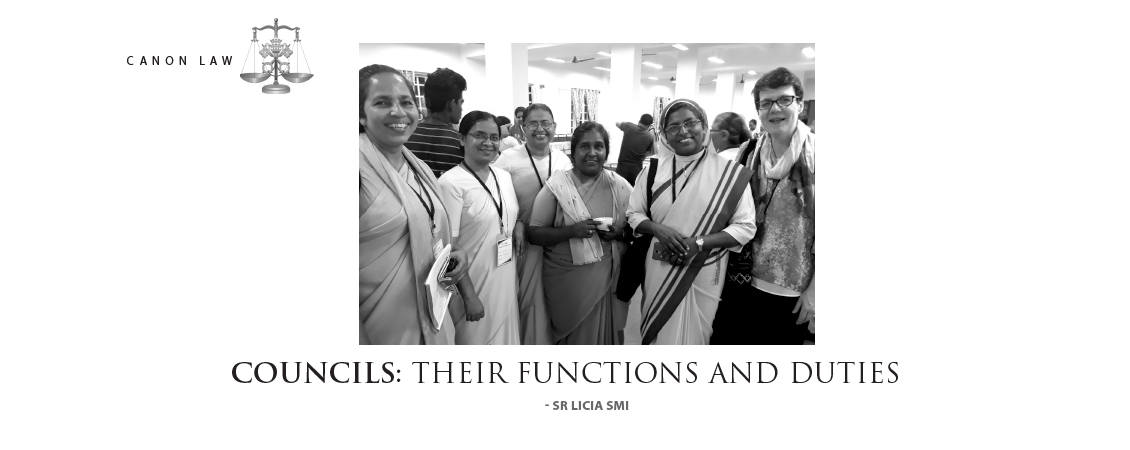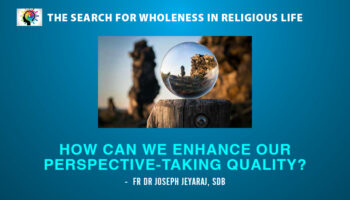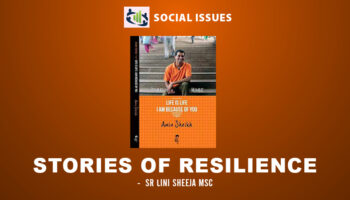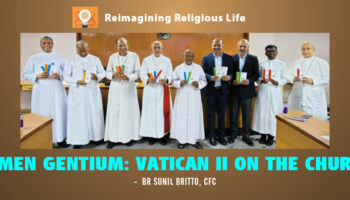Sr Patricia, one of the general councillors of her religious order, reveals the discussions of the council and a decision confided to her by the superior to one of her friends in the institute. That friend in turn passes it on to other friends. By the time the authorized communication is circulated, the matter has already become public. Consequently, some are indifferent towards the official communication; others feel hurt.
What is the proper way for a council member to act?
The councillors mainly participate in the governance of the institute by a deliberative or consultative vote. They are to stand by the superior on all decisions, while retaining their freedom to express their opinion, admonish the superior or even report matters to the higher authority, if required. Other functions of the council, as well as its composition and membership, must be expressly determined in the Constitutions. In the case of dismissal of a member, Canon Law (CIC c. 699§1) stipulates a minimum of four council members.
In order to seek consent or advice, the superior has first to convoke the council. This is the first requisite for validity, unless the constitutions say otherwise for mere advice (CIC cc. 166§1, 127§1; CCEO cc. 948§1, 934§1). The purpose of calling a council is for the superior to be enlightened about the best possible option. After convoking, the superior has to present the necessary facts relating to the matter to the councillors. The council members have the right to be informed of the relevant facts needed to form a valid judgement. Superiors are duty‑bound not to manipulate the consultation process.
Consultation
The consultation of the council takes place through a consultative vote. After considering the advice of the council, the superior makes the decision. For the validity of the act, consulting the council is a must, but the superior is not bound to follow the opinion even if it is unanimous. At the same time, the superior is not to act contrary to the unanimous opinion unless there is a grave reason in the judgement of the superior. Councillors are to collaborate with the superior in expressing their mind sincerely, whether acting as part of the group or as individuals (CIC c. 127§3; CCEO c. 934).
No one can abstain from expressing their opinion, because the non-cooperation of the councillors can paralyze the governance of the institute. The advice of the council members must be personal, free, honest and truthful without any partiality or vested interest and devoid of partisanship, factionalism, anger, pride, stubbornness or blind adherence to their personal opinion.
Consent
Consent is obtained through a deliberative vote and with the absolute majority. In the cases, where consent is required, the superior cannot act validly without adhering to the majority vote of the councillors. While superiors are obliged to obtain consent, the law does not strictly oblige them to proceed with the action. The superior may abstain from the action, after the deliberative vote, because of confidential information. Unlike consultation, in respect of consent, if a council member, after prayer and discernment, feels the need to abstain from voting, they retain that freedom. But that freedom can be exercised only when there is an honest reason. In such instances, the superior or other members of the council cannot force that member to vote against their conscience.
Secrecy
Canon Law (CIC c. 127 §3) urges the councillors to maintain secrecy in all important matters discussed in the council; the superior must insist on this obligation. The seriousness of the matter demands it and the superior can insist on the obligation of secrecy even by means of a decree (CIC c. 49). The councillors should not reveal the happenings/discussions in the council deliberations (the opinion or vote given by the councillors; transfer or appointment of the members, etc.). They should also maintain the secrecy in other important matters confided to them by the superior. The revelation of these matters could be counterproductive and can cause great harm.

To subscribe to the magazine Contact Us





